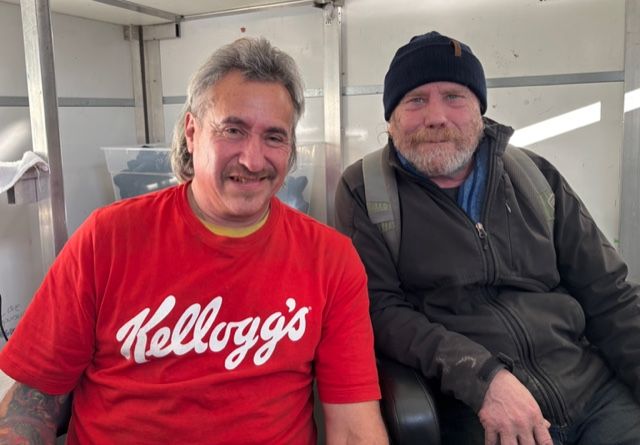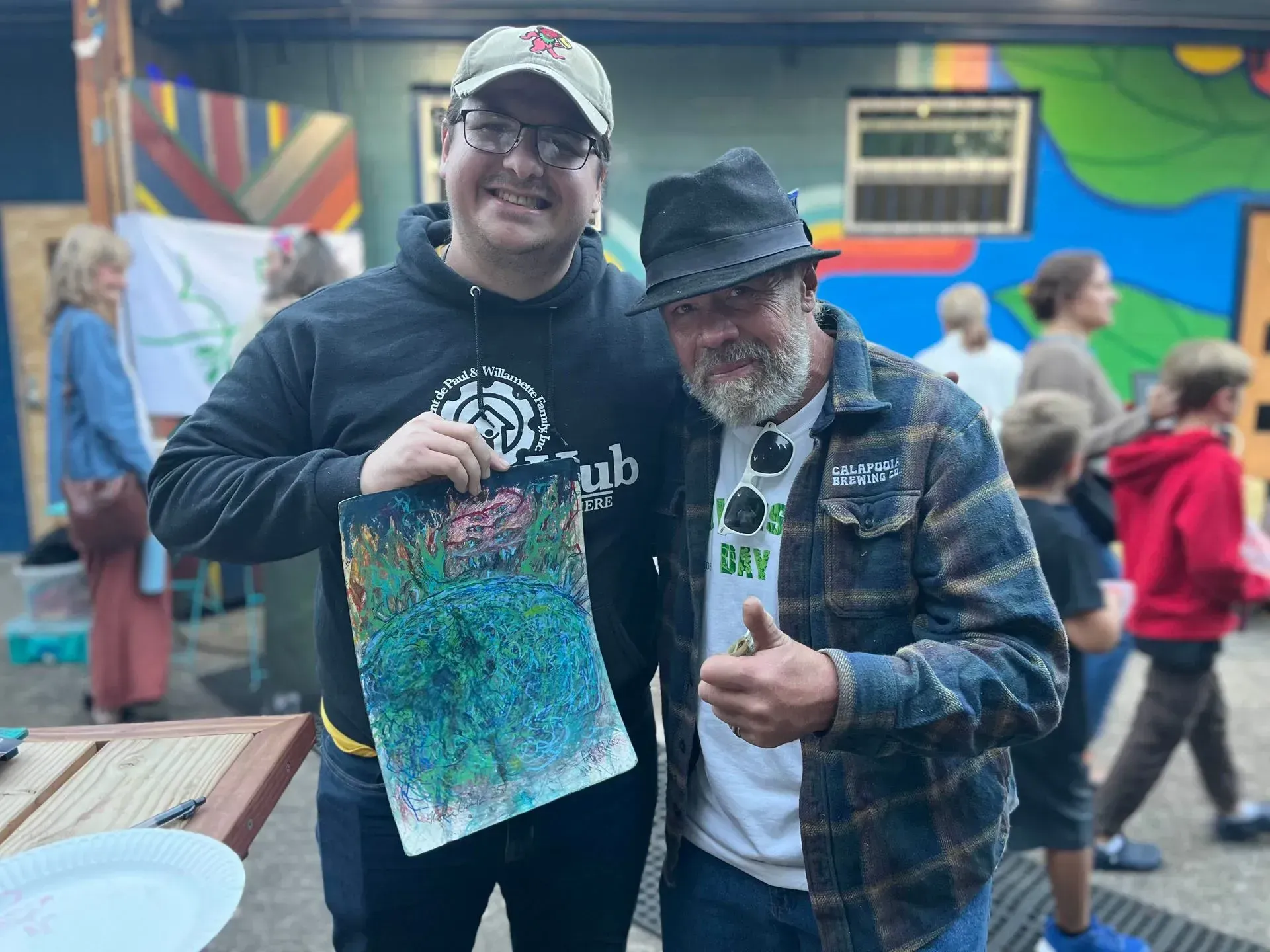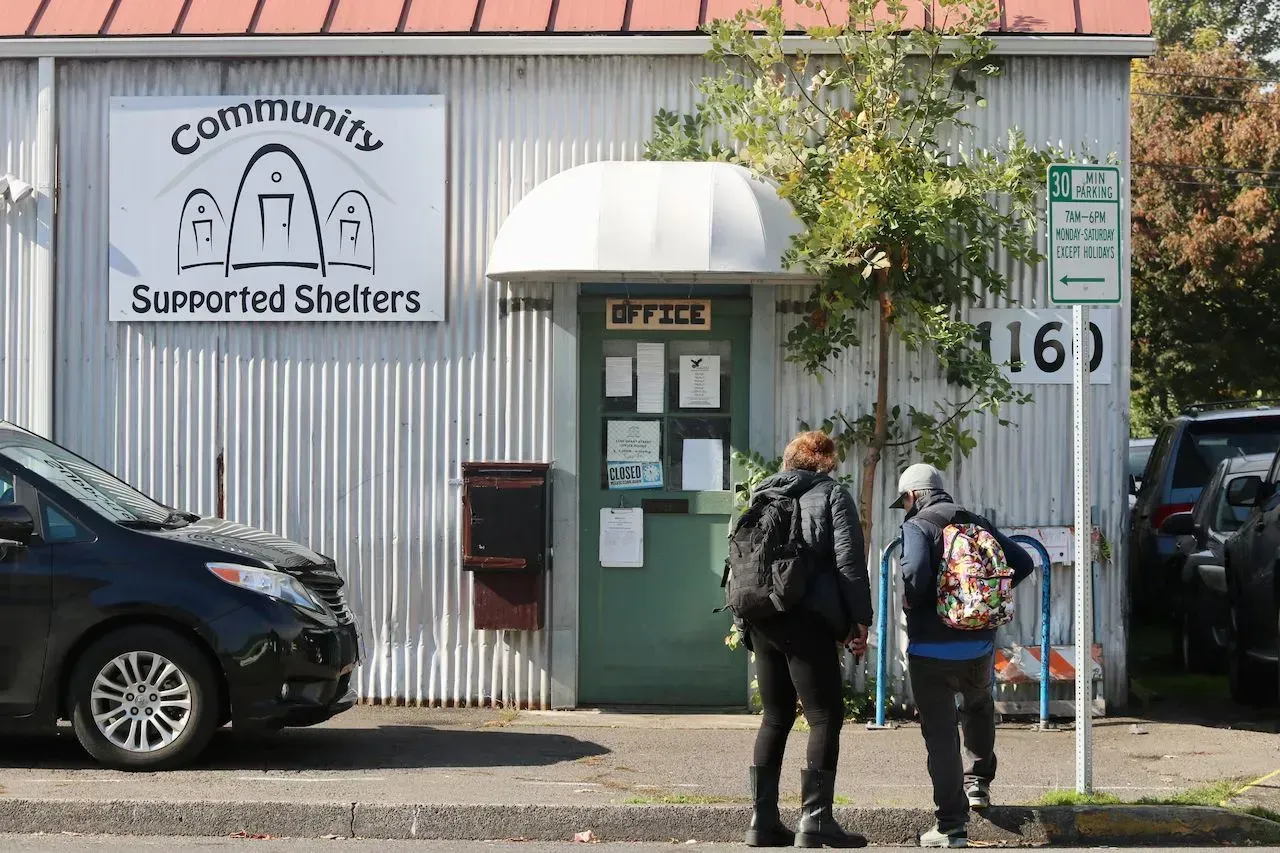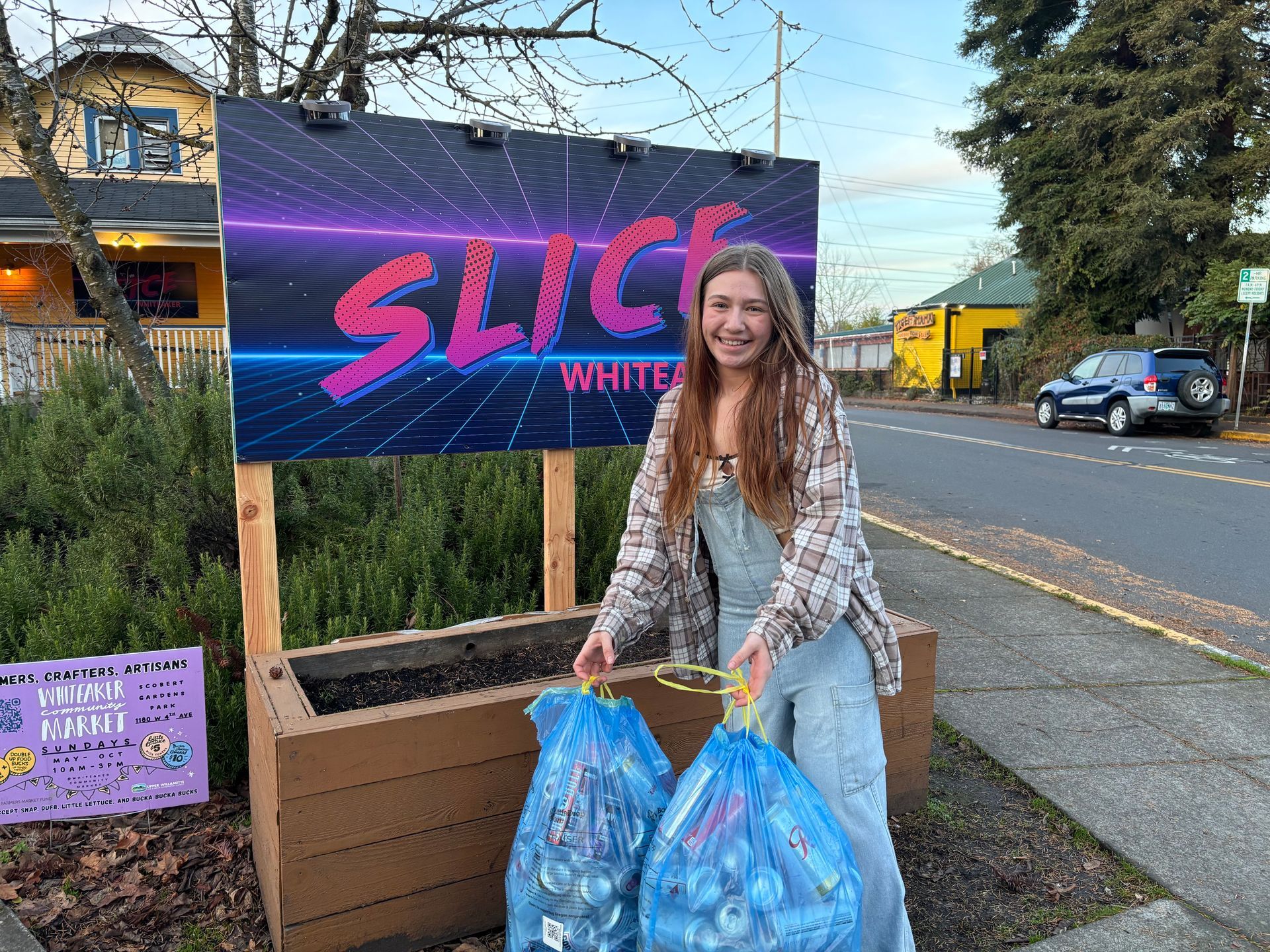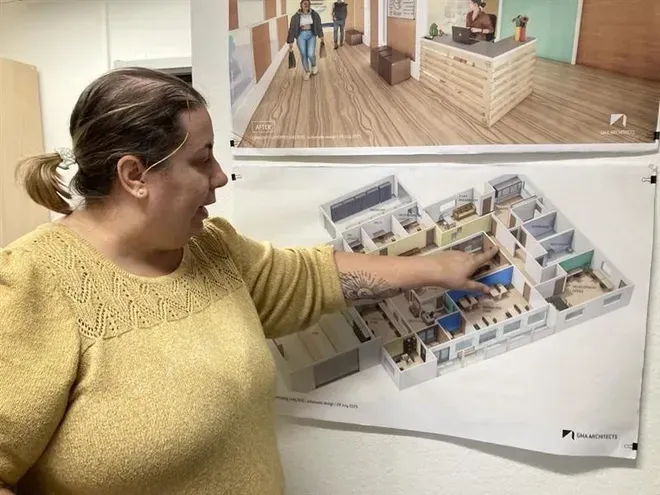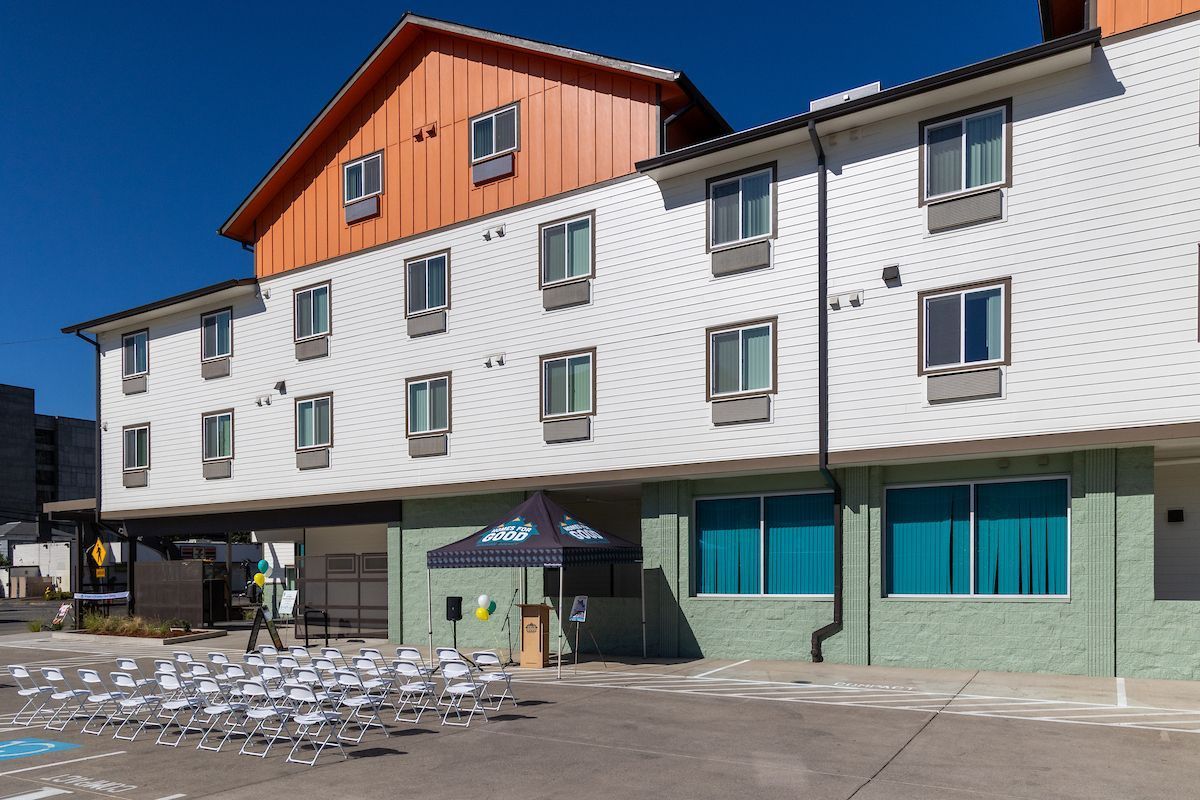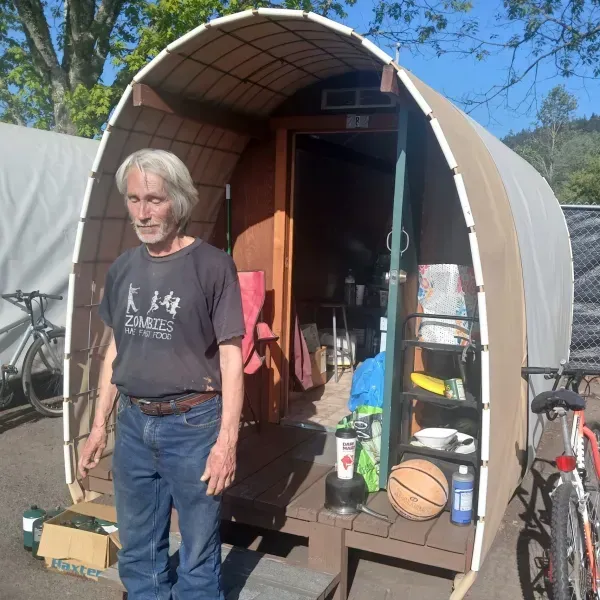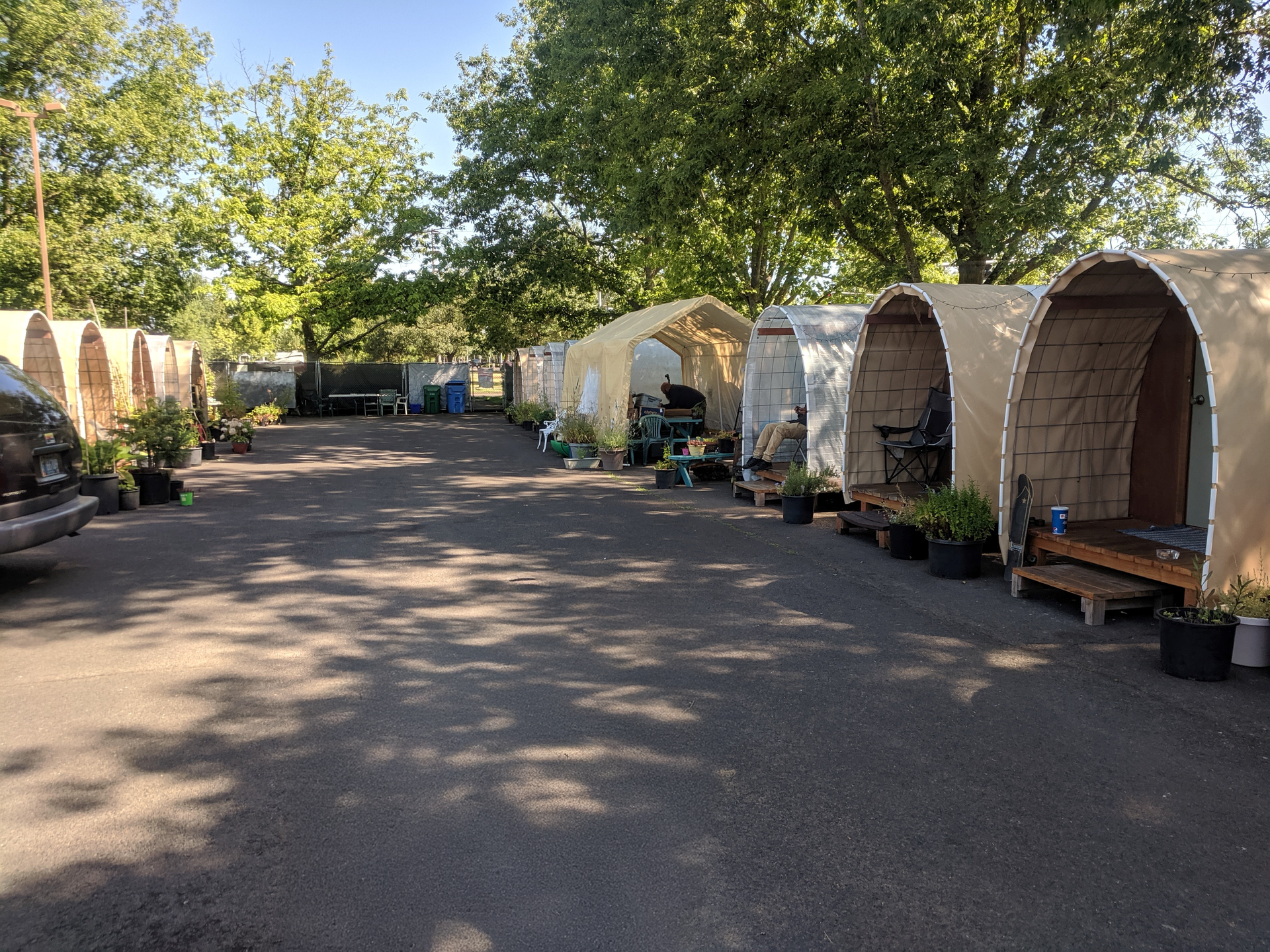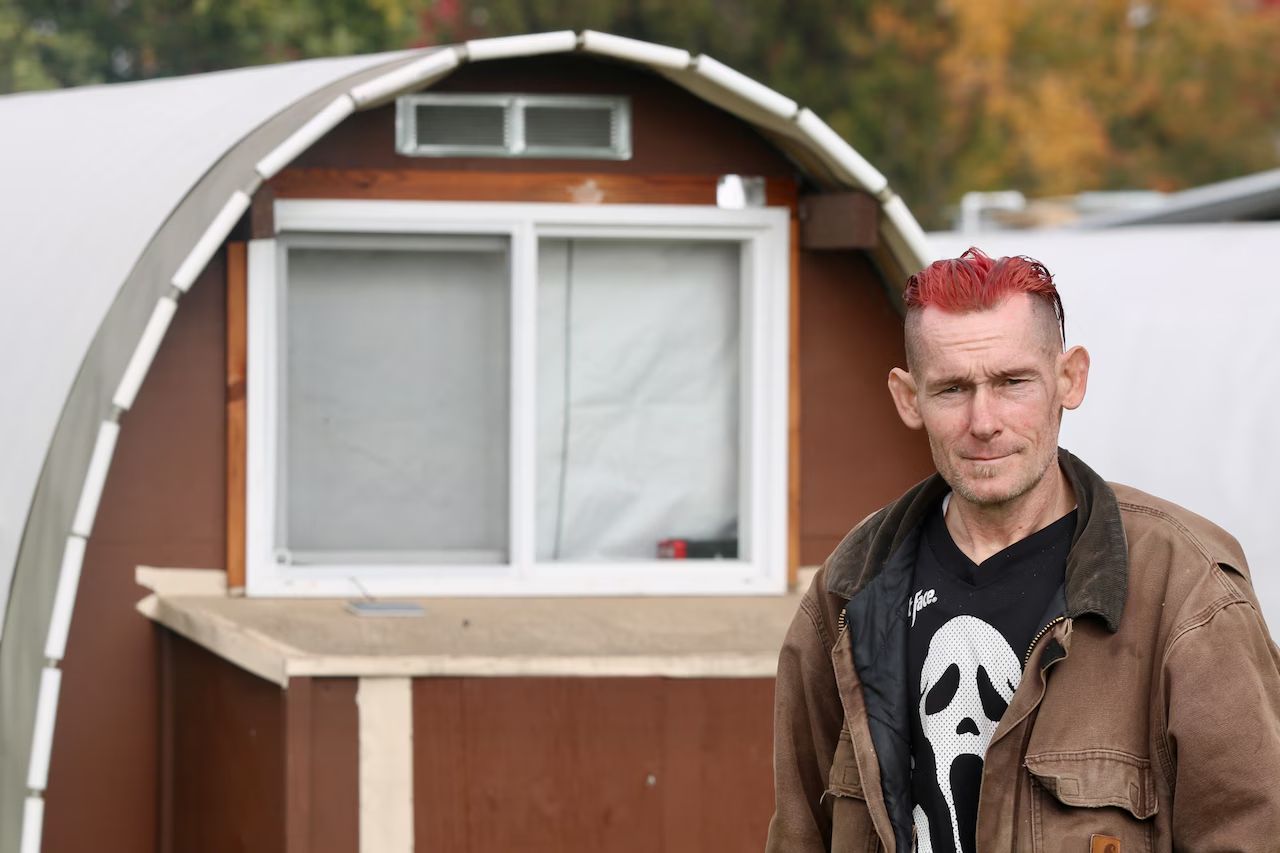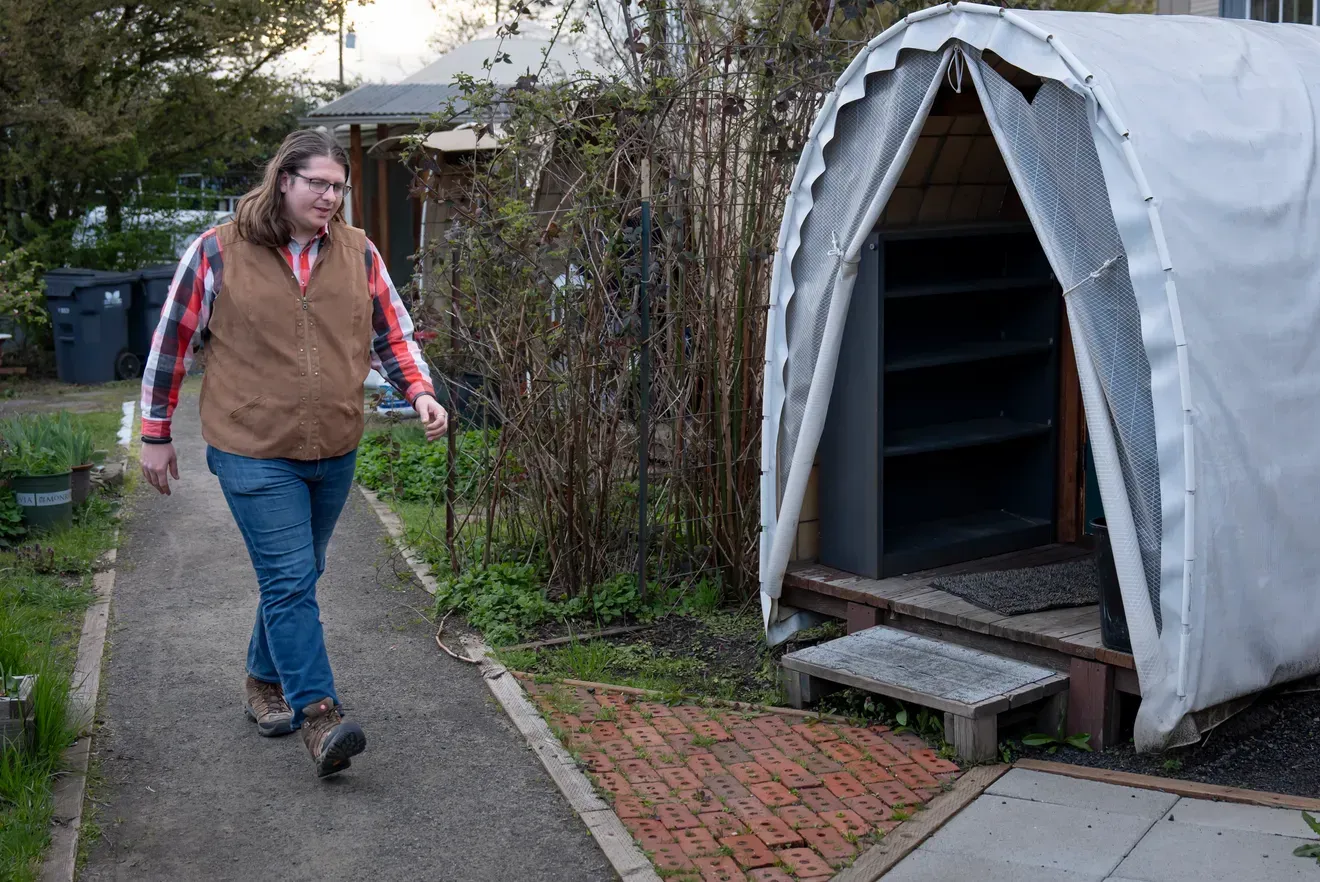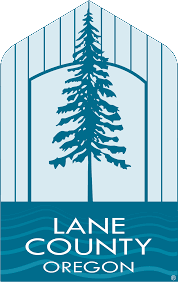A different “War on Poverty”
Jan. 1, 2014
Growing up in Eugene, I’ve always observed people holding signs on corners and living under bridges. In my teenage years I painted spray can murals, often underneath the Four Corners Bridge on Highway 99. On each side of the tracks there are large concrete walls that we’d paint on, sometimes from morning until evening. At that time, just on the other sides of the walls were several cube-shaped makeshift dwellings where people lived. We never had any trouble with those people. They were always pleasant to converse with. I even remember one time when a guy offered me some barbecued chicken that he was preparing. Here was somebody that had very little offering me some of the only food he had because he lived his life everyday sharing what he had.
Let’s juxtapose that scene with a more recent experience. Not too long ago, I was working at the front gate of the Eugene Safe Spot Camp, a legal camp for the unhoused, and a woman in her late 50s pulled up in a spotless SUV. She wanted to hire somebody to help her out with house cleaning. She said she likes the idea of the camp better than hosting people at churches. I talked with her about how the Eugene Safe Spot Camp works. And then I almost fell over when she began talking about herself in an unexpected way. “I am poor,” she said. “I don’t even give much support to my church.” Her words—“I am poor”—were ringing in my ear while she went on to talk about her snow skiing hobby. Eventually I just said, “Pardon me, I have to get back to work” and politely excused myself from the conversation.
Often we hear about the War on Poverty. Usually what comes to mind when defining poverty is someone’s economic status and income. But there is another sort of poverty that has to do with “never having enough.” In some ways, people who suffer from this sort of poverty are poorer than people who have very little but are content. This isn’t a revolutionary or new way of thinking, but it’s becoming more relevant as our mainstream societal environment becomes increasingly diseased from the spread of false concepts of what a wealthy life is! This disease has taken such deep roots that many people cannot recognize it anymore; it has become a norm of our shared experience. This way of thinking and acting in the world is at the root of unsustainable culture. So, poverty can also mean “not being able to see the abundance that we already have, therefore perpetually consuming more.”
The bulk of my experience has shown me that poor people—people without lots of money—typically give more of themselves to the common good than people with lots of money. This is not true of all poor people; it’s only the poor people NOT living in poverty. This is also not true of all people who have more money than they know what to do with, but it probably applies to the bulk of them. This too is not a new phenomenon. Consider Jesus’s words in Mark 12:42–44, which tells of a poor widow who gave all her resources to the church:
“Calling His disciples to Him, He said to them, ’Truly I say to you, this poor widow put in more than all the contributors to the treasury; for they all put in out of their surplus, but she, out of her poverty, put in all she owned, all she had to live on.’”
There is another fitting saying concerning poverty: “You can take people out of poverty, but it is more challenging to take poverty out of people.”
With this new definition of poverty as something that afflicts those with and without money, this saying is still true. You can give the rich more and more, and they will still feel like they need more. This is the most devastating form of poverty afflicting our society.
Maybe the ”War on Poverty” should be recast as “Making Peace with Having Enough.”
News & Events
To stay connected to CSS, subscribe to our quarterly newsletter. If you are a member of the media who is seeking info, contact
community@cssoregon.org.
